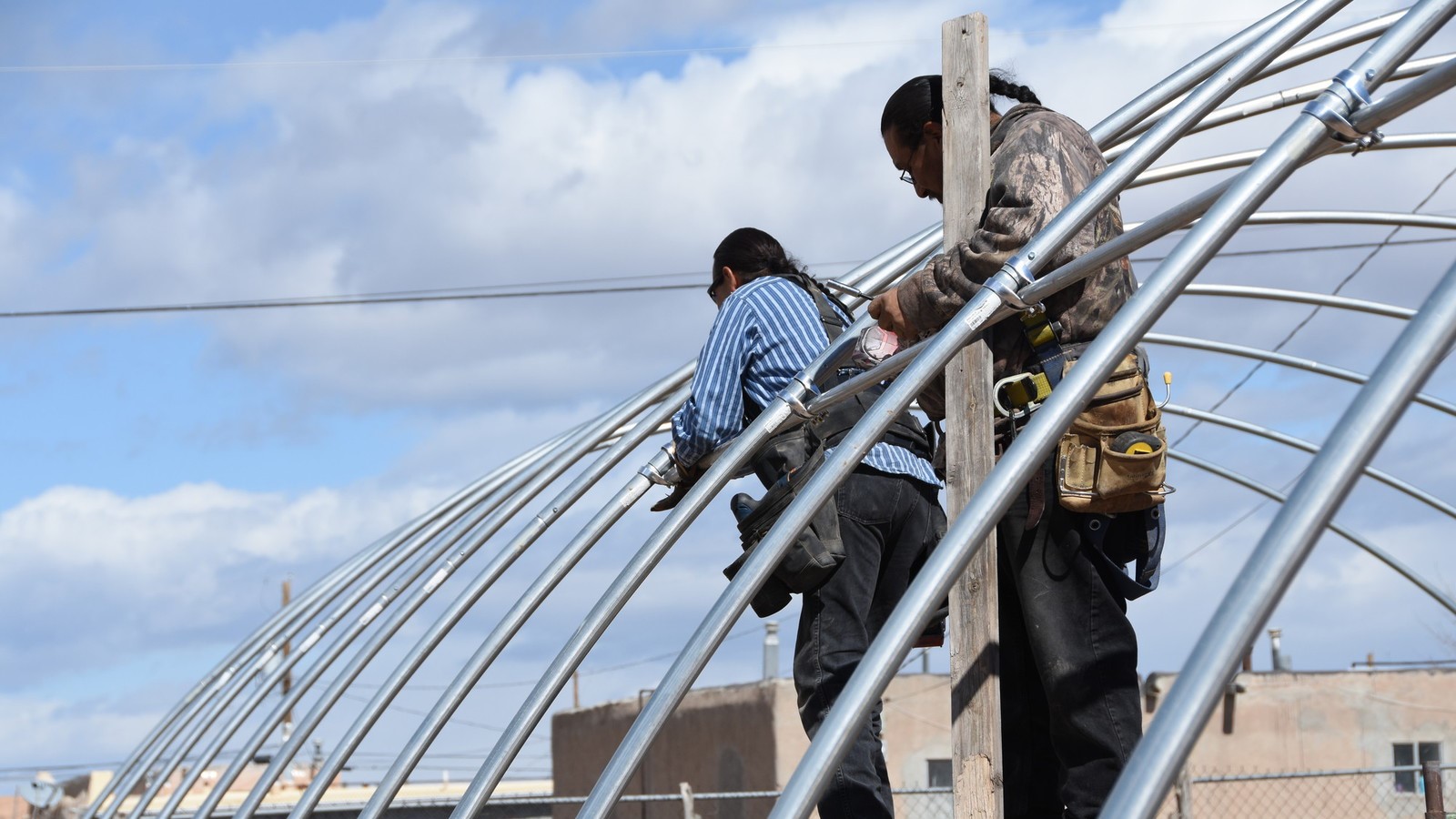
Building a cold frame Patrick Jaramillo
Agriculture is at the very heart of our existence as land-based people in New Mexico. Small farmers and their traditional practices are essential to meeting the needs of people in communities throughout New Mexico. But too often, most federal government programs fail to help those who farm a small number of acres.
That’s one reason why AFSC NM’s material and technical assistance work is so important. Building on our years of farmer training work, AFSC supports small farmers and community organizations by providing the resources and technical know-how they need to be sustainable and thrive.
AFSC recently helped one of our partners repair their cold frame. The Native American Community Academy uses a cold frame as part of their garden program, where up to 100 students get on-farm lessons in biology, nutrition, and agriculture. We helped one farmer with a drip irrigation system.
While we are proponents of traditional acequia-fed flood irrigation, climate change and population growth mean there is less water available for agriculture. Many farmers are incorporating drip irrigation into their operations to stretch the limited water resources.
We were able to lend some specialized equipment to another farmer to prepare a new field for a fall crop. We also helped a close partner organization, Los Jardines Institute, repair their “Coolbot.” This ingenious piece of equipment utilizes a common window air conditioner, which allows a farmer to build cold storage for a fraction of the cost of a conventional unit.
Los Jardines Institute employs three farmers and supplies produce to La Familia Growers Market and the Agri-Cultura Network, the farmer cooperative founded and incubated by AFSC New Mexico. They are a Libro Traficante site, a community-based library that houses books banned by White Supremacist state governments and school districts.
They are also tireless Environmental Justice advocates who were instrumental in the Southwest Network for Environmental and Economic Justice’s creation of the Jemez Principles for Democratic Organizing in 1996. Those principles are as relevant today as they were back then:
- Be inclusive
- Emphasis on bottom-up organizing
- Let people speak for themselves
- Work together in solidarity and mutuality
- Build just relationships among ourselves
- Commitment to self-transformation
I’m proud that AFSC New Mexico continues to build on these principles as we create change in unjust systems. By supporting small farmers, we’re increasing access to healthy, local food in the community and our local schools. We do all of our work with an eye on social, economic and climate justice. We’re growing food – and so much more.